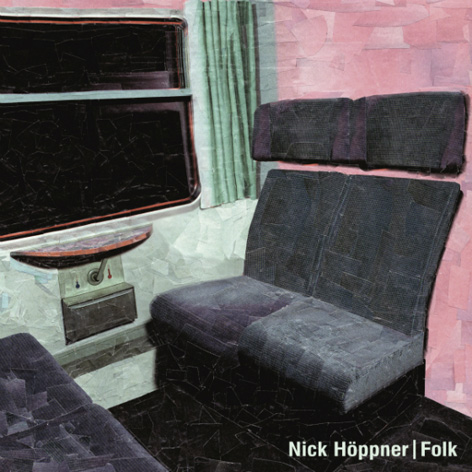Nick Höppner Folk
The former Ostgut Ton manager presents his debut solo collection of original works.

If you’ve been the manager of Ostgut Ton, one of the foremost techno labels of the day, it is clear you know what sort of records make a club tick. Couple that with ten years plus of production experience and a DJ diary that would be the envy of any underground spinner, and what you have is the recipe for a kicking full length. And that’s pretty much what we get from Nick Höppner’s debut solo album, Folk. Given the amount of time he has spent in clubs over the years, it’s refreshing that Höppner stays true to what he knows here and opts to serve up plenty of floor-facing fodder, despite the fact such a collection of tracks will always risk the wrath of the anti-dance album brigade.
But this one works just fine, because it unfolds like a set: a robust, forceful set that barrels along on bulky drums and never really leaves you hanging long enough to get bored. That’s not to say every track is a winner—there are some filtered vocals on “Come Closer” that lend it a rather naff electro-house feel. And the slower tempo of “Relate,” though obviously intended to stall the album’s growing momentum before a big closer, is all too pleasantly inoffensive and middling.
The album opens on “Paws” (one of its most triumphant notes along with the similarly rush-y title track) with translucent and gloopy synths slithering around a train-track kick-clap like oil on water. It’s an effervescent house track that sounds like little else, and sets in motion the sort of slick groove that rarely wanes from there on in. Tracks like “Mirror Image” build on that nebulous sense of rhythm—it jitters up and down, leaving long shimmering tails of percussion and diffusive synth lines in its wake.
Rather than being imbued with a musty and humid techno feeling, much of Höppner’s work here feels more akin to the soaring serenity of Detroit’s finest hi-tek soul: “Out Of” rides a grinding bass riff to the outer edges of the galaxy, “Rising Overheads” is pregnant with a sense of growing unease and inner tension in line with its fiscally suggestive title and the stomping “Grind Show” offers a more brutal, dark and industrial mood. Whatever style he opts for, then, Höppner has a rare knack for propulsion that is impossible to ignore.

